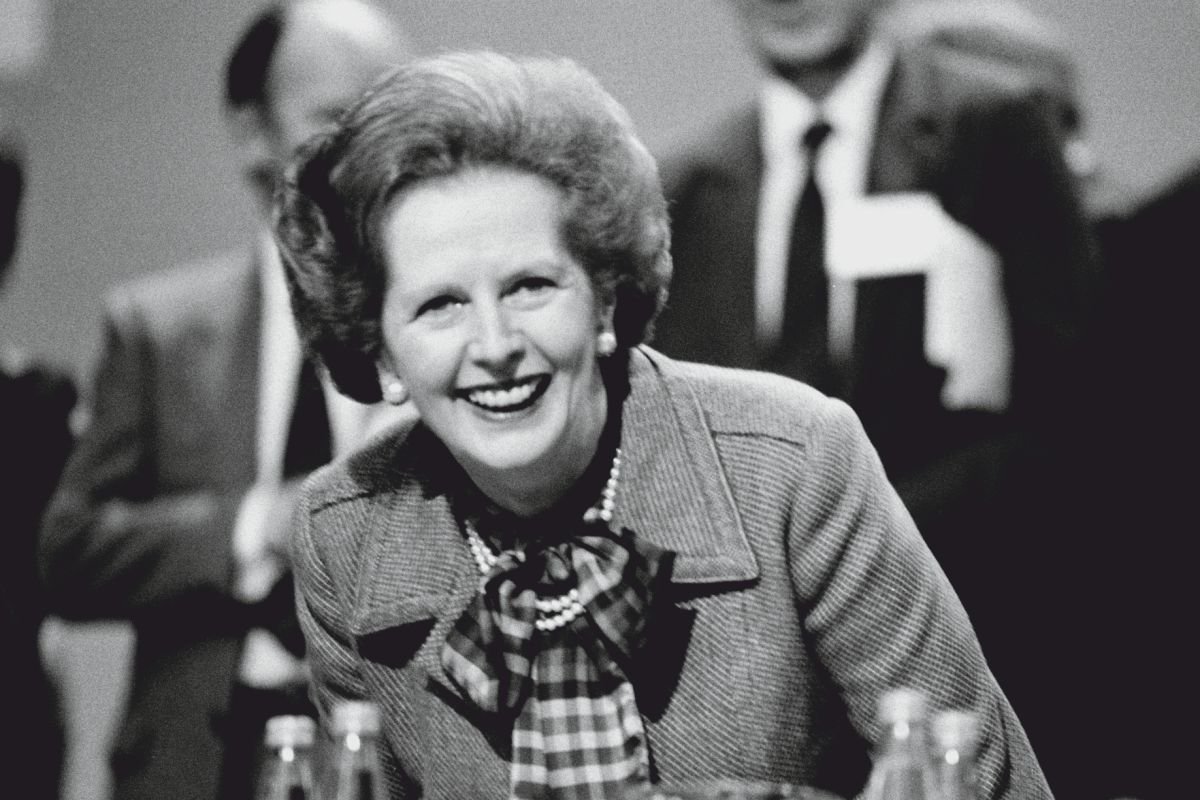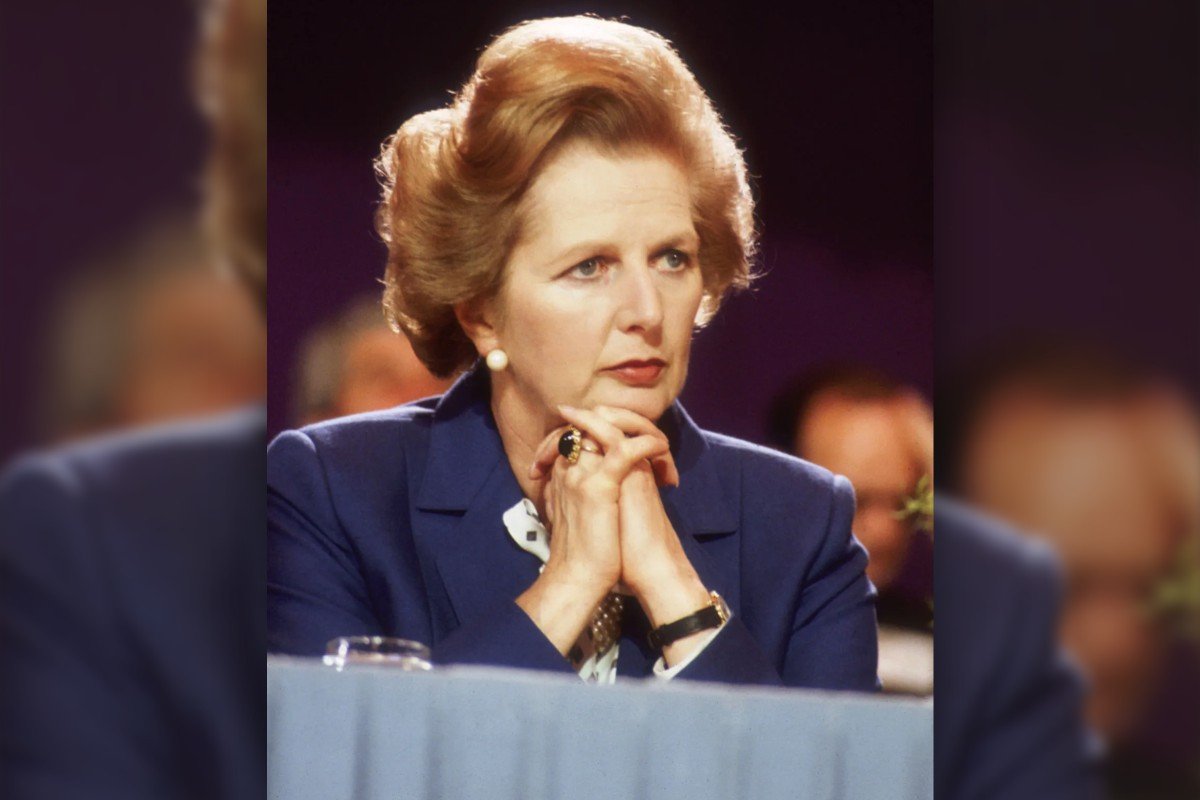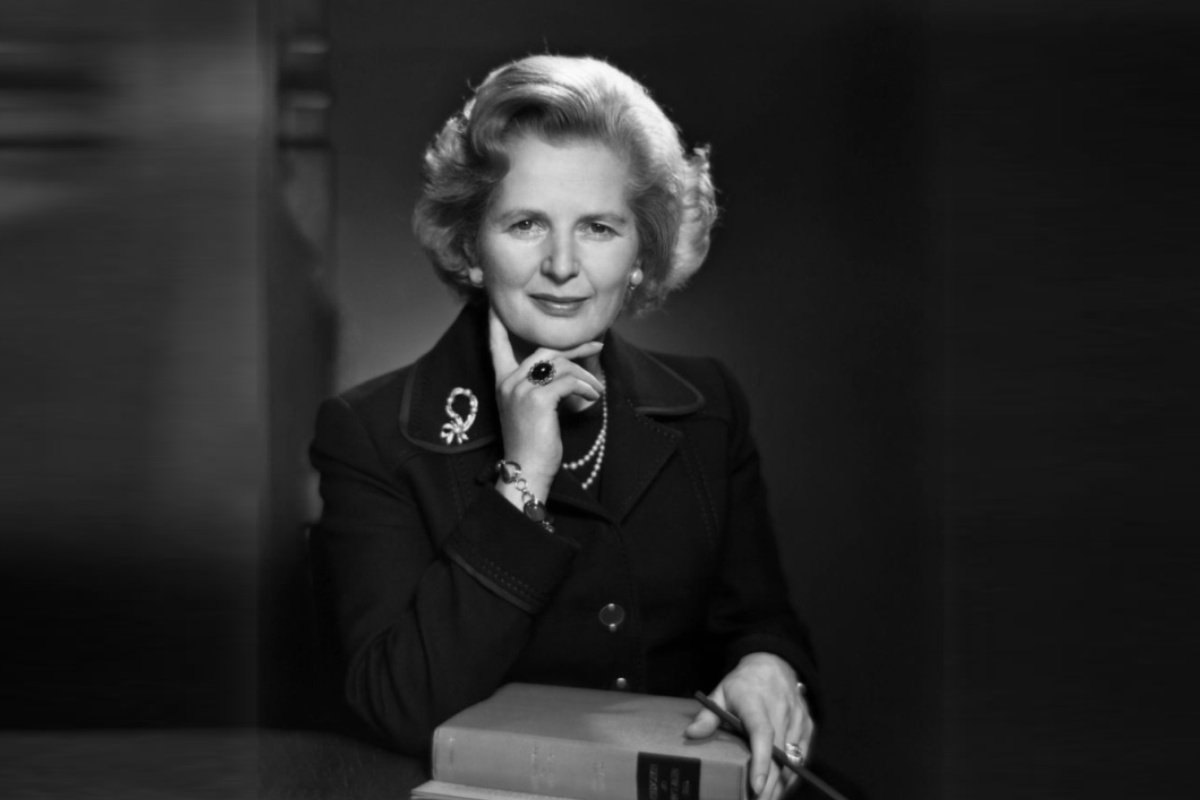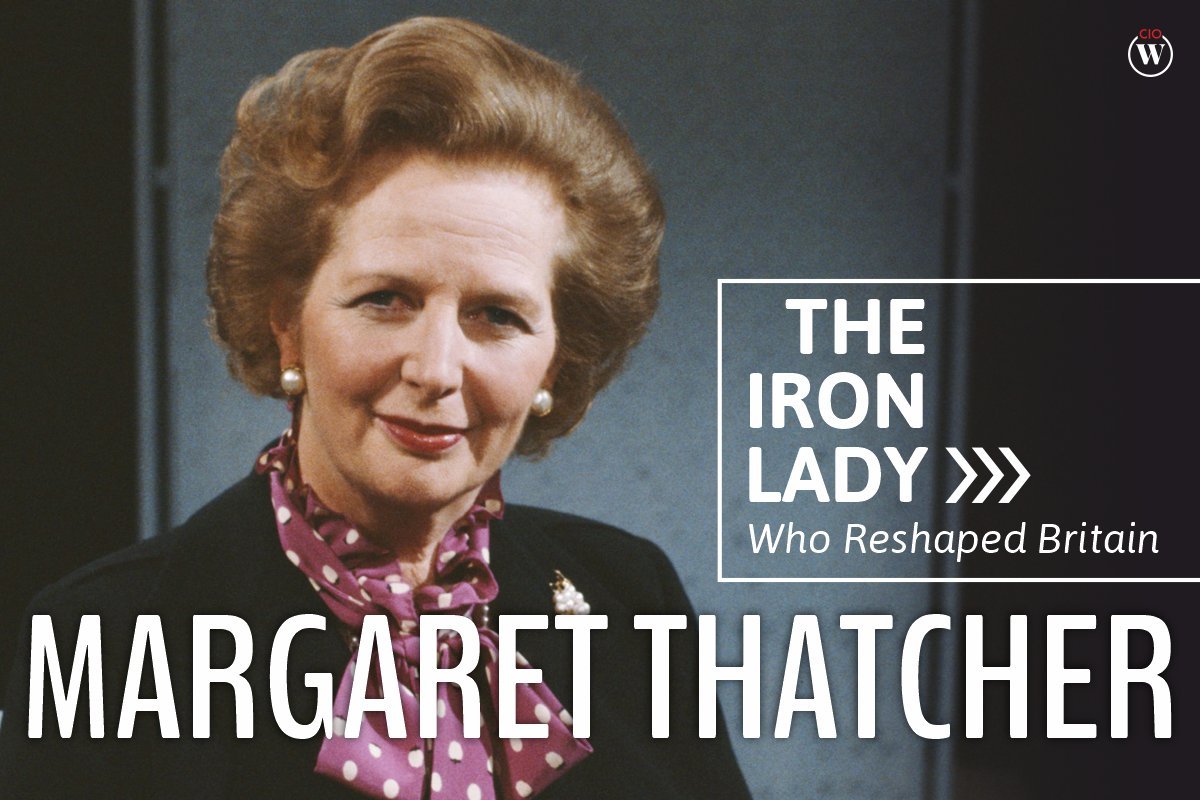Source – www.history
Margeret Thatcher was a British stateswoman and Conservative politician who served as Prime Minister of the United Kingdom from 1979 to 1990 and Leader of the Conservative Party from 1975 to 1990. She was the longest-serving British prime minister of the 20th century and reshaped Britain in many ways. Through this article, we will learn about how she became a legend and her contributions to the society.
Margaret Thatcher’s Early Life
Margeret was born as Margeret Hilda Roberts on 13 October 1925 in Grantham, Lincolnshire to the family of Alfred and Beatrice Roberts. Her father, Alfred Roberts was a shopkeeper and Mayor of Grantham, which helped pique her interest in politics. She was educated at a local grammar school and later she studied Chemistry at Oxford College from 1943 – 1947.
Even after studying chemistry and receiving a degree of Master of Art in 1950, she always held an interest in politics and became the President of the Oxford University Conservative Association in 1946. After graduating she started working as a research chemist at BS Platics in Essex. In 1949, she met a successful businessman Denis Thatcher, and got married to him in 1951.
The Rise Of Margaret Thatcher in Politics
In the 1950-51 general elections, she was a Conservative candidate for the Labour seat of Dartford. She was the youngest and only female candidate which gained a lot of media attention. She studied for the bar and qualified for the barrister in 1953 and specialized in taxation. Her entry into politics came in 1959 when she was elected as the member of Parliament for Finchley.

From there she slowly moved up ranks, serving as a parliamentary secretary in the Ministry of Pensions and National Insurance (1961 to 1964), as chief opposition spokesman on education (1969 to 1970), and as secretary of state for education and science (1970 to 1974), before taking over the role of Conservative party leader from Edward Health, who had lost two successive elections, in 1975. In 1979, she was elected as the first female prime minister of Britain and held the position for 11 years.
Major Events After Margaret Thatcher Became Prime Minister
- When faced with a growing number of people without jobs (which reached 2 million for the first time), she was encouraged by critics from the Conservative Party to change her approach to reducing government spending. However, she responded firmly by saying, “If you want to change direction, go ahead, but I will not change my stance!”
- In 1982, Argentina invaded the Falkland Islands, and Margaret Thatcher sent a group of British forces to take back the islands. A significant moment in the conflict was when an Argentine ship called General Belgrano was sunk after Thatcher personally ordered it to be attacked. It was later revealed that the ship was moving away from an area where it was not supposed to be. This decision sparked anger among anti-war politicians and activists. However, the majority of the public supported the Falklands War and Thatcher’s role in it. This support greatly improved her popularity and played a significant role in her overwhelming victory in the 1983 General Election.
- In 1984, the National Union of Mineworkers (NUM) went on strike because many coal mines were being closed. The government had stored coal and was accused of intentionally causing the strike to weaken the union’s power. The strike lasted for more than a year and resulted in violent clashes between picketers and the police, including the well-known Battle of Orgreave. Eventually, the miners returned to work, but the government had succeeded in reducing the influence and strength of the union. The public had mixed opinions about the strike, with many people on the left and in the northern regions supporting the miners. This contributed to Margaret Thatcher being seen as a highly divisive figure in politics, with strong supporters and opponents even today.
- In 1984, there was a bombing at the Grand Hotel in Brighton during a meeting of the Conservative Party. The IRA planned to harm Margaret Thatcher, but thankfully she was not hurt. However, the explosion caused the deaths of five people and left many others with serious injuries, including the wife of a government minister named Norman Tebbit.
- In 1987, Margaret Thatcher’s government won another general election, this time against the Labour Party led by Neil Kinnock. Although the victory was not as strong as in 1983, it still gave Thatcher a good majority in Parliament, allowing her to continue implementing her policies and plans.
Why Was She Known As Iron Lady?
Margaret Thatcher gained the title – Iron Lady. This was because of her strong and unwavering leadership style during her time as the Prime Minister of the United Kingdom from 1979 to 1990. She earned this nickname due to her determination, resilience, and tough approach to politics.

Her leadership was characterized by her firmness and determination to implement her policies, even in the face of opposition. She firmly believed in her conservative ideals and was not afraid to challenge existing norms and make bold decisions. She was known for her strong conviction that the government should have a limited role in the economy and that individuals should have more freedom and responsibility. She believed in free markets, privatization, and reducing the power of labor unions.
One of the key reasons Margaret Thatcher gained the nickname “Iron Lady” was her tough stance on the trade unions. She took on the powerful and often militant unions, which were causing significant disruptions and strikes in various industries at the time. She implemented laws to curb their power and strengthen the authority of the government, leading to clashes and confrontations. Her resolute approach in dealing with the unions earned her a reputation for being unyielding and determined.
Her handling of the Falklands War in 1982 also contributed to her iron-like image. When Argentina invaded the Falkland Islands, she swiftly responded by sending a task force to retake the islands. Her strong leadership during the conflict and her refusal to negotiate with the Argentine government showcased her resoluteness and determination to protect British interests. The successful outcome of the war further solidified her reputation as a strong and decisive leader.
Margaret Thatcher’s firm stance against communism and her close alliance with the United States during the Cold War era added to her image as the Iron Lady. She played a significant role in promoting free-market capitalism and challenging the Soviet Union’s influence. Her strong convictions and assertive foreign policies earned her respect and admiration from supporters, but also criticism from opponents who saw her as uncompromising.
Ways She Changed Britain
- The Big Bang and Margeret Thatcher’s Impact
In the late 1970s, London’s financial district, known as the Square Mile, was an exclusive, male-dominated club characterized by traditional suits, posh accents, and leisurely lunches. Money was made at the Stock Exchange by licensed dealers representing prestigious firms like Quilter and Co.
However, everything changed with the arrival of the Big Bang. After Margaret Thatcher’s election, exchange controls were lifted, attracting foreign capital into Britain. In 1986, the Stock Exchange was deregulated, inviting major global players into the trading floor.
This new era saw traders sending large sums of money across international financial networks. The transformation was symbolized by the gleaming towers of Canary Wharf, rising from the once-industrial London Docklands. London’s journey towards becoming a global financial powerhouse had begun.
Though the crash of five years ago cast a shadow on the Big Bang’s freewheeling spirit, her deregulation efforts had already created a new, internationally-focused City. The financial sector, estimated to be worth £125.4bn at the beginning of this decade, contributed significantly to the UK economy.
- Thatcher’s Battle with the Miners
Margaret Thatcher entered office with a determination to confront the influential National Union of Mineworkers (NUM), which had caused embarrassment to her predecessor, Edward Heath, in the 1970s.
The miners’ strike of 1984-85 became an opportunity for her to dismantle the NUM’s power and introduce legal barriers to prevent future industrial action, which she believed had plagued Britain in the 70s. Additionally, the decline of Britain’s manufacturing industry, which Margaret Thatcher’s government made little effort to reverse, further eroded the foundations of British trade unionism.
The combination of high unemployment and economic recession significantly weakened the bargaining power of the unions in the early to mid-1980s. Union membership in Britain has since halved, as a result of these factors.
- Influence on Fashion and Power Dressing
As the City of London grew in prominence, a new money-focused ethos emerged, giving birth to a distinct style. Designer labels flourished, catering to the aspirational spirit of the era. Actresses like Joan Collins, who admired Thatcher, popularized the look of female power-dressers through their roles in glamorous American soaps like Dallas and Dynasty.

This style was characterized by shoulder pads and sharply tailored suits. Thatcher herself favored a blue skirt suit, pearls, and an Asprey handbag, a look that would go on to influence powerful women like Hillary Clinton and Condoleezza Rice.
- Margaret Thatcher’s Views on the BBC and the Legacy of Cultural Conflict
Margaret Thatcher viewed the BBC license fee as a mandatory tax imposed on all television viewers, regardless of their interest in BBC programs. As prime minister, she believed the corporation had a leftwing bias in its coverage. During the Falklands War, critics even mockingly renamed it the Stateless Persons Broadcasting Corporation, highlighting its reluctance to refer to British troops as “our” troops and Argentinian soldiers as “the enemy.”
The 1990 Broadcasting Act aimed to regulate the BBC by requiring it to outsource a portion of its production and introducing competition from new players. However, the legacy of the Margaret Thatcher era was that it pulled the BBC into a continual culture war. Her role in the creation of Channel 4 in 1982 likely didn’t anticipate that it would popularize fiercely anti-establishment programming.
Later Life
She has suffered a lot of health issues since 2003 and died on 8 April 2013 at the age of 87 at The Ritz Hotel in London, after suffering a stroke. She received a ceremonial funeral including full military honours, with a church service at St Paul’s Cathedral. Be it positive, or negative, she left a big legacy behind and people still remember her for all the changes and works she had done while being the Prime Minister of Britain.








